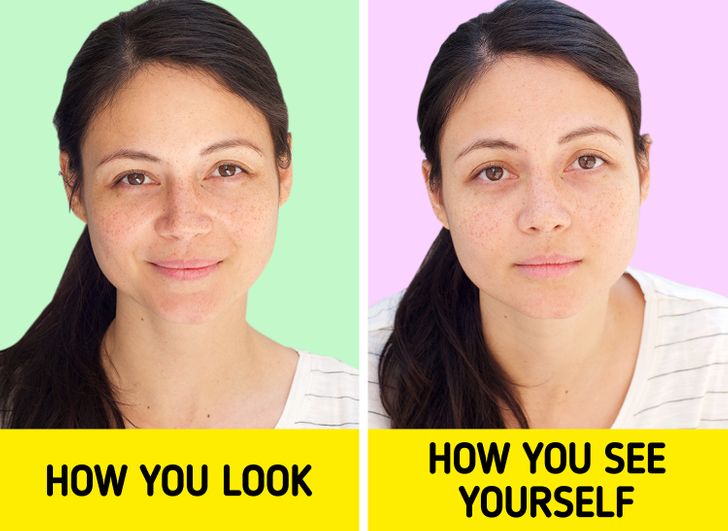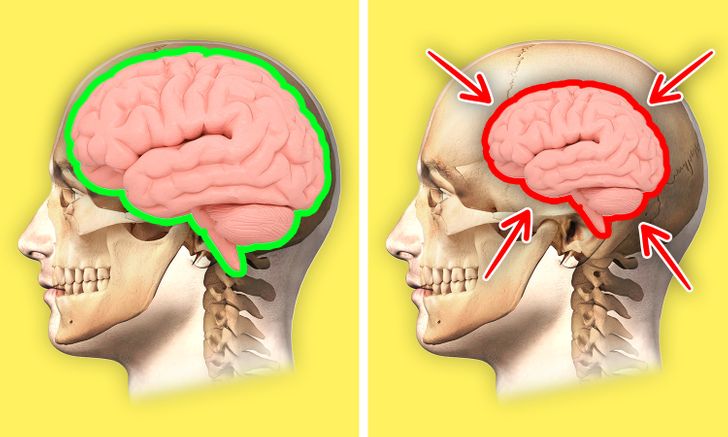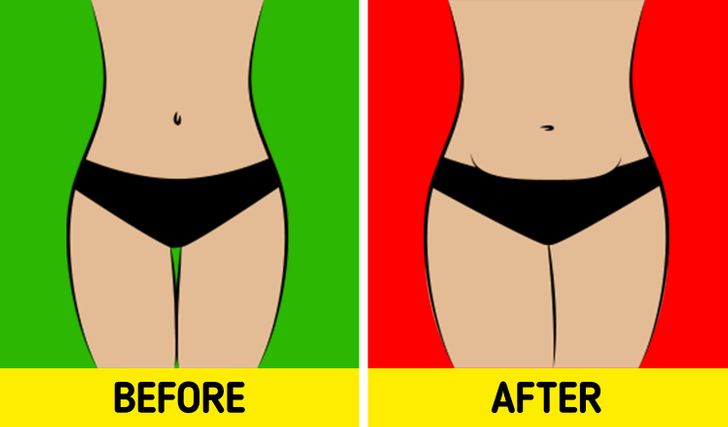Sleep is a fundamental pillar of health, yet in today’s fast-paced world, many of us are not getting enough of it. Chronic sleep deprivation affects millions, with profound consequences on both physical and mental well-being. This comprehensive guide explores what happens to our bodies if we don’t get enough sleep, detailing the hidden dangers of sleep loss and why a good night’s rest is essential for optimal health.
In this article, we will delve into how insufficient sleep can lead to dangerous “microsleeps,” impair judgment, negatively affect our emotions, trigger hallucinations and psychosis, harm brain function, and even contribute to weight gain.
Let’s explore each of these critical impacts in detail and learn how prioritizing sleep can protect your health.
It Can Lead to “Microsleeps”: The Hidden Danger of Brief Sleep Episodes

One of the most alarming effects of sleep deprivation is the occurrence of “microsleeps.” These are brief episodes of sleep that can last anywhere from a fraction of a second to several seconds, and they happen without you even realizing it.
Understanding Microsleeps
What Are Microsleeps?
Microsleeps are involuntary, momentary lapses in consciousness that occur when your brain is so fatigued that it essentially “shuts off” for a few seconds. These episodes can happen even when you are engaged in activities like driving or working, posing significant risks to safety and performance.
Impact on Daily Life:
Microsleeps can lead to errors, accidents, and impaired performance. For example, a microsleep while driving can result in catastrophic consequences. Similarly, in a work environment, these brief episodes can reduce productivity and increase the risk of mistakes.
Scientific Insights:
Studies have shown that chronic sleep deprivation significantly increases the frequency of microsleeps. For more detailed information on microsleeps, visit WebMD’s sleep deprivation resource.
How to Prevent Microsleeps
Monitor Your Sleep Patterns:
Consider using sleep tracking devices to monitor your sleep quality and identify areas for improvement.
Prioritize Sleep:
Ensure you get 7-9 hours of quality sleep each night.
Take Regular Breaks:
If you’re feeling drowsy, take a short nap or a walk to boost alertness.
It Affects a Person’s Judgment: The Cognitive Consequences of Sleep Loss

Sleep deprivation doesn’t just affect physical health—it also has a profound impact on cognitive functions, including judgment and decision-making.
The Cognitive Impact of Insufficient Sleep
Impaired Decision-Making:
When you’re sleep-deprived, your brain struggles to process information and make sound decisions. This can lead to poor judgment in both professional and personal settings.
Risky Behavior:
Research shows that lack of sleep is linked to an increased likelihood of engaging in risky behaviors. Without proper sleep, the brain’s prefrontal cortex, responsible for executive functions, doesn’t operate at full capacity.
Memory and Concentration Issues:
Insufficient sleep hampers your ability to concentrate and form new memories. Over time, this cognitive decline can lead to decreased productivity and overall performance.
Strategies to Protect Cognitive Function
- Establish a Regular Sleep Schedule:
Go to bed and wake up at the same time every day to help regulate your body’s internal clock. - Create a Relaxing Pre-Sleep Routine:
Engage in calming activities, such as reading or meditating, to prepare your mind for sleep. - Limit Screen Time Before Bed:
Reduce exposure to blue light from screens, which can interfere with the production of melatonin, the sleep hormone.
For more on how sleep affects cognitive function, check out Harvard Medical School’s sleep research.
It Affects Our Emotions Negatively: Mood Swings and Emotional Instability

Emotions are intricately linked to sleep. When you don’t get enough rest, your emotional regulation suffers, leading to mood swings, irritability, and a decreased ability to handle stress.
The Emotional Toll of Sleep Deprivation
Increased Irritability:
Lack of sleep can make you more prone to anger and frustration. Simple tasks can become overwhelming, and minor irritations may trigger disproportionate emotional responses.
Heightened Stress Levels:
Sleep is crucial for managing stress. When you’re sleep-deprived, your body produces more stress hormones, such as cortisol, which can exacerbate feelings of anxiety and depression.
Reduced Empathy:
Studies have shown that insufficient sleep can impair your ability to empathize with others, affecting your relationships and social interactions.
Improving Emotional Health Through Better Sleep
- Practice Mindfulness:
Incorporate mindfulness and meditation into your daily routine to help manage stress and improve emotional regulation. - Engage in Regular Physical Activity:
Exercise is a natural mood booster and can improve both sleep quality and emotional health. - Maintain a Balanced Diet:
Nutrient-dense foods, particularly those rich in omega-3 fatty acids and antioxidants, can support brain health and emotional stability.
For additional insights on managing emotions through sleep, visit Psychology Today’s sleep and mood articles.
It Can Lead to Hallucinations and Psychosis: The Extreme Effects of Sleep Deprivation

In severe cases, chronic sleep deprivation can lead to drastic alterations in perception, including hallucinations and even psychosis. These extreme symptoms highlight just how critical sleep is for maintaining mental health.
The Extreme Consequences of Prolonged Sleep Loss
Hallucinations:
When your brain is deprived of sleep for extended periods, it may start to misinterpret sensory information, leading to hallucinations. These can be visual, auditory, or even tactile.
Psychotic Episodes:
In extreme cases, prolonged sleep deprivation has been linked to symptoms of psychosis, where individuals lose touch with reality. This condition is particularly dangerous and requires immediate medical attention.
Cognitive Overload:
Chronic lack of sleep overwhelms the brain’s capacity to process information accurately, leading to severe cognitive disruptions that can manifest as psychotic behavior.
Prevention and Early Intervention
- Seek Professional Help:
If you experience hallucinations or signs of psychosis due to sleep deprivation, seek immediate medical assistance. - Prioritize Rest:
Implementing strict sleep hygiene practices and seeking professional advice on sleep disorders can help prevent these extreme outcomes. - Monitor Mental Health:
Regular mental health check-ups can help detect early signs of sleep deprivation-related issues before they escalate.
For more information on the mental health impacts of sleep deprivation, refer to National Sleep Foundation.
It Can Harm Your Brain: The Neurological Impact of Sleep Loss

Your brain is one of the most critical organs affected by sleep, and chronic sleep deprivation can have long-lasting effects on brain function, structure, and overall cognitive health.
The Neurological Dangers of Inadequate Sleep
Brain Cell Damage:
Research indicates that chronic sleep deprivation can lead to brain cell damage and a reduction in the brain’s ability to repair itself. This deterioration can affect memory, learning, and overall cognitive performance.
Reduced Cognitive Function:
The brain relies on sleep for the consolidation of memories and learning. Without sufficient sleep, these processes are impaired, leading to difficulties with concentration, problem-solving, and decision-making.
Increased Risk of Neurodegenerative Diseases:
Studies have linked long-term sleep deprivation with an increased risk of developing neurodegenerative conditions such as Alzheimer’s disease and Parkinson’s disease. The accumulation of toxic proteins in the brain during sleep loss is believed to play a role in this risk.
Strategies for Brain Health
Prioritize Quality Sleep:
Aim for 7-9 hours of high-quality sleep each night to allow your brain to repair and rejuvenate.
Engage in Brain-Boosting Activities:
Regular mental exercises, such as puzzles, reading, and learning new skills, can help maintain cognitive function.
Maintain a Healthy Lifestyle:
A balanced diet rich in antioxidants, regular physical exercise, and stress management are all crucial for protecting your brain.
For more detailed research on sleep and brain health, visit Harvard Health Publishing’s sleep research.
It Can Make You Gain Weight: The Metabolic Effects of Sleep Deprivation

Weight gain is a common side effect of chronic sleep deprivation. When you don’t get enough sleep, your body’s metabolism is disrupted, leading to weight gain and a higher risk of obesity.
How Sleep Loss Contributes to Weight Gain
Hormonal Imbalance:
Lack of sleep affects the balance of hormones that regulate hunger and satiety, namely ghrelin and leptin. An increase in ghrelin (the hunger hormone) combined with a decrease in leptin (the satiety hormone) can lead to increased appetite and overeating.
Slowed Metabolism:
Sleep deprivation slows down your metabolism, making it harder for your body to burn calories efficiently. This metabolic slowdown can contribute to gradual weight gain over time.
Increased Cravings:
When sleep-deprived, your brain craves high-calorie, sugary foods as a quick energy fix, leading to poor dietary choices that further contribute to weight gain.
Tips to Prevent Weight Gain from Sleep Deprivation
Regular Sleep Schedule:
Maintain a consistent sleep schedule to support hormonal balance and metabolic health.
Mindful Eating:
Practice mindful eating to avoid emotional eating triggered by sleep deprivation. Focus on balanced meals with lean proteins, healthy fats, and whole grains.
Physical Activity:
Engage in regular exercise to boost metabolism and counteract the effects of sleep loss.
For further insights on the relationship between sleep and weight management, explore WebMD’s sleep and weight articles.
Integrating Better Sleep Habits Into Your Daily Routine
The negative impacts of sleep deprivation on your body are extensive, affecting everything from your cognitive function and emotional stability to your physical health and metabolism. The good news is that improving your sleep habits can significantly enhance your overall well-being.
Practical Tips for Achieving Better Sleep
Establish a Consistent Sleep Schedule:
Go to bed and wake up at the same time every day to regulate your body’s internal clock.
Create a Sleep-Friendly Environment:
Make your bedroom a sanctuary for sleep. Use blackout curtains, maintain a cool temperature, and minimize noise and distractions.
Limit Screen Time:
Avoid screens at least an hour before bedtime. The blue light emitted by devices can interfere with the production of melatonin, a hormone essential for sleep.
Practice Relaxation Techniques:
Engage in calming activities such as reading, meditation, or gentle stretching before bed to signal to your body that it’s time to sleep.
Watch Your Diet:
Avoid heavy meals, caffeine, and alcohol close to bedtime as they can disrupt your sleep cycle.
For more detailed advice on improving sleep quality, visit National Sleep Foundation.
Conclusion: Prioritize Sleep for a Healthier, Happier Life
Not getting enough sleep can have far-reaching consequences on every aspect of your health—from triggering microsleeps and impairing judgment to affecting your emotions, brain function, and weight. Understanding the critical importance of sleep is the first step toward making positive changes that can improve your overall well-being.
By adopting better sleep habits, you can protect your brain, regulate your emotions, support your metabolism, and enjoy a higher quality of life. Make sleep a priority by following the practical tips outlined above, and recognize that quality sleep is not a luxury—it’s a necessity for a healthy, productive, and fulfilling life.
For further reading and expert insights on the importance of sleep, consult reputable sources such as Harvard Health Publishing and Mayo Clinic. Embrace the power of sleep and unlock the full potential of a healthier, happier you—one restful night at a time.









